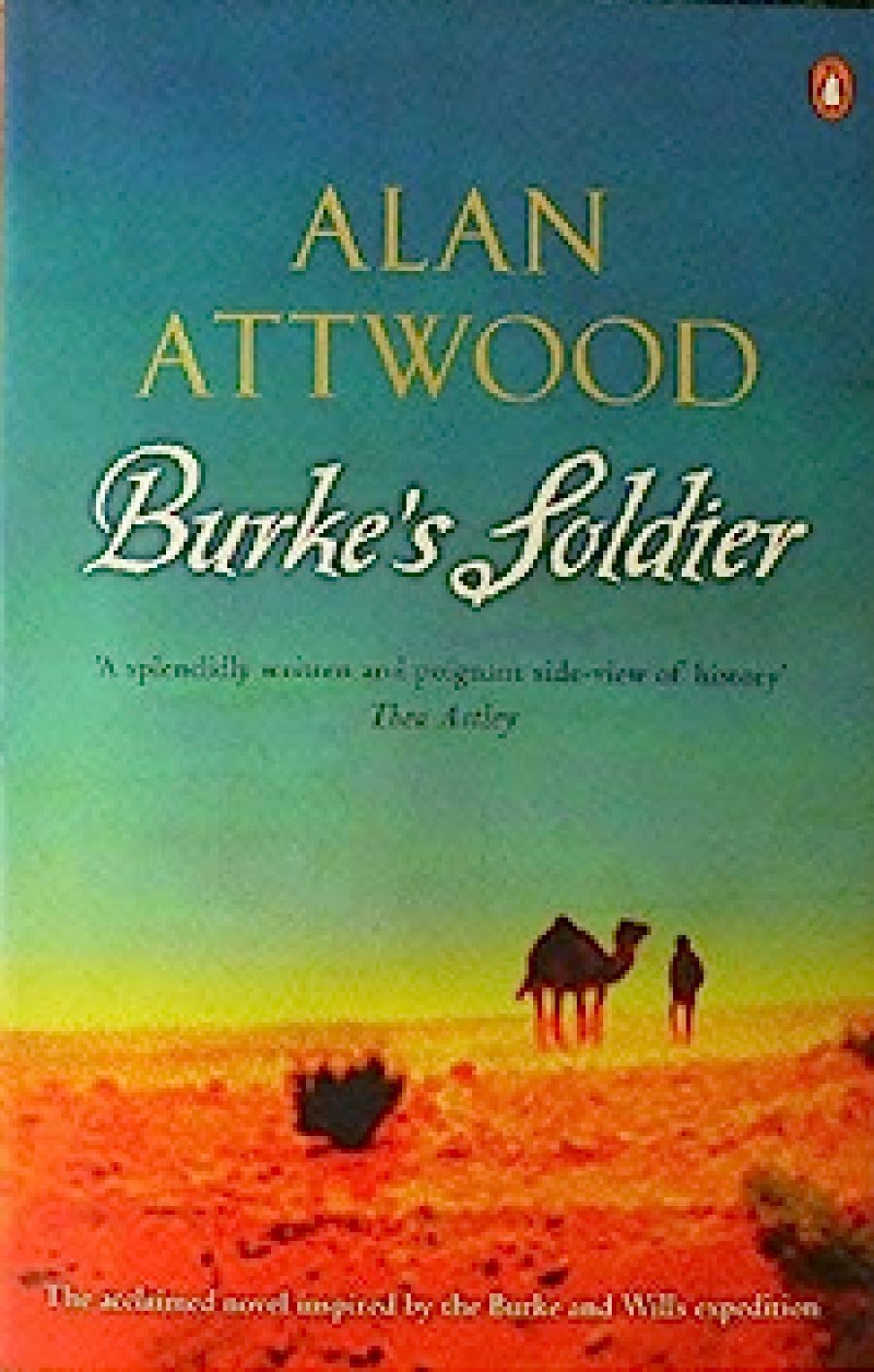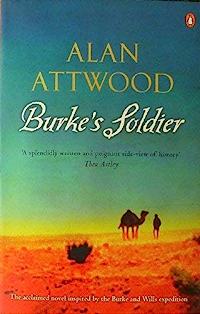
- Free Article: No
- Contents Category: Fiction
- Review Article: Yes
- Article Title: The Long Trek
- Online Only: No
- Custom Highlight Text:
After Ned Kelly, the story of Burke and Wills ranks high among Australians’ favourite tales of heroic failure. Simpson and his donkey are on the list, followed closely by any number of stories from the locker rooms of sporting clubs both great and small. There are strict conventions governing the telling of these stories. However pointless, futile, and even bloody they may have been, they are handed down as stories of romance. Kelly, Simpson, and Bradman all had a final stand. The hero, in his final stand, is alone on a pedestal. The other people around at the time are reduced to the role of extras. It’s a pity. Arthur Morris, the man at the other end when Bradman was dismissed for a duck in his final innings, went on to make 196. Nobody much remembers. Joe Byrne, Kelly’s closest ally and confidant, happened to speak Cantonese. An addict, he had picked it up among the opium traders of Beechworth. Byrne’s acquisition of a Chinese language is far more interesting than the dreary question that has been provoked by yet another movie version of the Kelly story – whether or not Ned spoke with an Irish accent.
- Book 1 Title: Burke's Soldier
- Book 1 Biblio: Viking, $45 hb, 450 pp
- Book 1 Cover Small (400 x 600):

- Book 1 Cover (800 x 1200):

Alan Attwood’s fictional account of the Victorian Exploration Expedition, long known as the Burke and Wills Expedition, is told through the eyes of a man who has often been overlooked. John King – a soldier, not a gentleman – was the sole survivor of the mission. It left Royal Park in Melbourne in August 1860 with a preposterous amount of baggage; it had so much gear that, despite a theatrical farewell, it only got as far as Essendon on the first night. Yet, despite having so much stuff, the expedition was disastrously ill-equipped. It was led by a man who was inexperienced but knew everything. Historians have not fallen far short of calling Robert O’Hara Burke a nutter. As the team headed north, material was left behind. So were men. Eventually only Burke, Wills, Gray, and King attempted to complete the task set for the mission: to cross the continent for the first time from south to north. Attwood’s King describes the expedition as a babushka doll: constantly shedding material. The image is subtle. Babushka dolls diminish in size but remain the same in essence. In the end, having left with too much, they did not have enough to survive. It is a truly bizarre story, one whose details never seem to stale.
Attwood is brave to fictionalise a story that is so widely known and which has been well served by non-fiction writers. Sarah Murgatroyd’s recent book, The Dig Tree, is a finely crafted narrative; it makes seemingly effortless use of all the layers of irony and drama that lie within the plain facts of the story. She, too, finds a significant role for King. Initially, in her version, he is simply tagged to the end of the list of ‘gentlemen’. But her story ends with the legend that circulated among the Aborigines who looked after him until he was eventually rescued: that he had fathered one of their children.
Attwood brings a fresh pair of eyes to an old saga. He does this through the sharpness of his prose and the astuteness of his observation. His is a gentle and thoughtful account of proceedings. This is one of its attractions. Burke and Wills are often presented as severe characters: the former severely irrational, the latter severely rational. The pair somehow belonged together. One was compulsive, the other obsessive. Burke’s compulsiveness is evidenced by his gambling, the debts accruing from which followed him to the edge of the desert. He shared this kind of weakness with his great rival, Stuart, a man who was unlike him in so many other ways. Stuart was a drinker. For both Burke and Stuart, the desert was practically the only place they could escape these forms of self-destructive behaviour. Indeed, the psychological complexities of nineteenth-century Australian exploration are themselves only just beginning to be explored. Among those complexities is the relationship between moving beyond a frontier and some kind of physical or mental disability. For all their differences, Sturt, Stuart, and Giles had problems with eyesight. They went blind trying to see what none had seen before.
Burke’s Soldier does what historical fiction needs to do. It finds the loose ends of an established narrative and tugs at them. Attwood does not attempt to do much with one of the set-pieces of Australian history: the discovery on 21 April 1861 of the ‘Dig Tree’ – a cache of supplies left for the ailing explorers, now reduced in number to three – by a relief crew that had withdrawn from the depot of Cooper’s Creek only hours before. The three did not have the strength to follow, and Burke made more strange decisions. The scene has become the stuff of melodrama. Attwood knows when the light touch will work. He says simply: ‘Mr Burke groaned and seemed to scratch at the bark.’
Instead, Attwood hollows out places of his own. He creates a voice and a narrative for King’s sister, Nora, who awaits his return. He exploits the fact that pages were missing from the journals that were retrieved. He dwells on small ironies, such as the fact that, after both Burke and Wills had died, King ‘had clothes that were rags and little food, but two watches’. He creates a fictional meeting between King and Stuart, both survivors, both damaged. Most notably, he allows King to be loyal to Burke. King relates to Burke as the father he never had. As he lay dying, Burke wrote: ‘King has behaved nobly and I hope he will be properly cared for.’ He wasn’t. He may have behaved nobly, but he was not a nobleman. The best he was offered was a role in a touring freak show organised by the ubiquitous entrepreneur George Coppin. In this book, Burke is headlong and determined; King follows. This could be wearing, except for the fact that it turns out that, in his loyalty to Burke, King is really being loyal to himself. His survival is not by instinct but by art.
This is the most inventive twist in Burke’s Soldier. It is a pity that it takes so long to get to it. The last quarter of the book meanders past every person and event of the 1860s. Marcus Clarke, Captain Moonlite, the first Test cricket team, the first Melbourne Cup and the US Civil War all turn up to dissipate the focus of the novel in its closing stages. Attwood takes the long way home, but at least, unlike Burke and Wills, he makes it. The real survivor is the one who controls the story.


Comments powered by CComment